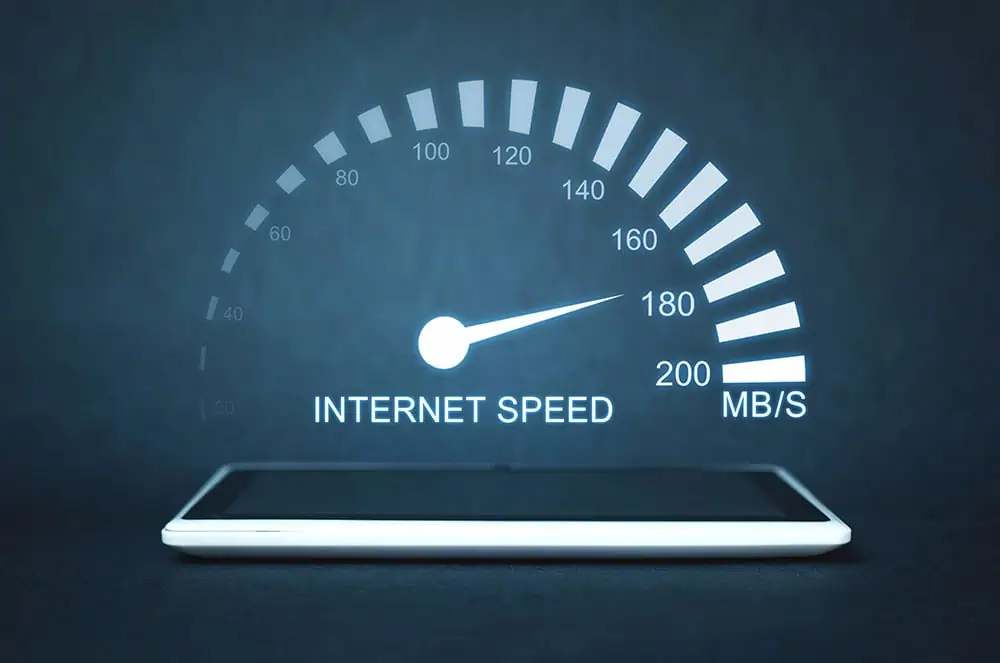
When thinking about an internet speed upgrade or searching for a new plan, it’s important to know how much speed you actually need. This largely depends on your household size and your internet usage.
What Speed Is Right for You?
The required speed can vary based on the number of people using the internet and the activities they engage in. The Federal Communications Commission (FCC) provides recommended speeds for common online activities, which can serve as a helpful guide. Here’s a quick overview of the recommended download speeds for various activities:
| Online Activity | Recommended Bandwidth |
|---|---|
| Streaming Music | 2 Mbps |
| Browsing, Email, Social Media, Shopping | 3 Mbps |
| SD Video Streaming | 3 Mbps |
| HD Video Streaming | 5 Mbps |
| HD Video Chatting | 10 Mbps |
| File Downloads | 10 – 50 Mbps |
| 4K Video Streaming | 15 Mbps |
| HD Online Gaming | 25 Mbps |
| Remote Work/Learning | 50 Mbps |
| 4K Online Gaming | 100 Mbps |
| Large File Downloads | 100 – 150 Mbps |
Note: The figures represent the minimum bandwidth needed for each activity. Multiple devices performing these tasks simultaneously will require more total bandwidth.
For smaller households (1-2 people), a connection of around 10 Mbps may suffice for basic activities. However, larger households with multiple users could require 40 Mbps or more to meet their online demands.
Understanding Internet Speed Basics
Internet speed is typically measured in bits per second. This measurement indicates how fast data can travel from one point to another, much like water flowing through a pipe—larger pipes (or higher speeds) allow more water (or data) to flow.
Historically, speeds started at kilobits per second (Kbps). Today, global average internet speeds stand at around 93.93 Mbps for fixed broadband connections. Meanwhile, mobile connections average about 50.0 Mbps.
There are also Gigabit options, which offer speeds of up to 1 Gbps (1 billion bits per second), and some providers even offer multi-gigabit services. However, availability depends on your location and the infrastructure of your internet service provider (ISP).
How Much Speed Do You Really Need?
According to the FCC, “broadband” is defined as having a minimum download speed of 100 Mbps and an upload speed of 20 Mbps. While these numbers represent the absolute minimum for an average user in 2024, your specific needs may differ based on your household’s online activities.
If streaming video or music is a primary entertainment source, aiming for at least 100 Mbps download speed is advisable. Many ISPs provide plans that meet this requirement.
For most households, a plan offering 100 Mbps should be sufficient. Speeds above this, such as up to 500 Mbps, provide a buffer for simultaneous use across multiple devices. At this speed, downloading a full 4K HD movie can take just about a minute.
Calculate Your Bandwidth Needs
To get a tailored recommendation for your internet service, consider using a bandwidth calculator. These tools ask questions about the number of devices and types of activities in your household, helping to suggest appropriate ISPs and service tiers.
If your internet feels slow despite having adequate speed, it might be due to older hardware like routers that cannot support faster speeds. Upgrading to newer technology can significantly improve performance.
Ultimately, understanding your internet usage and household needs will guide you in choosing the right speed for your connection.






